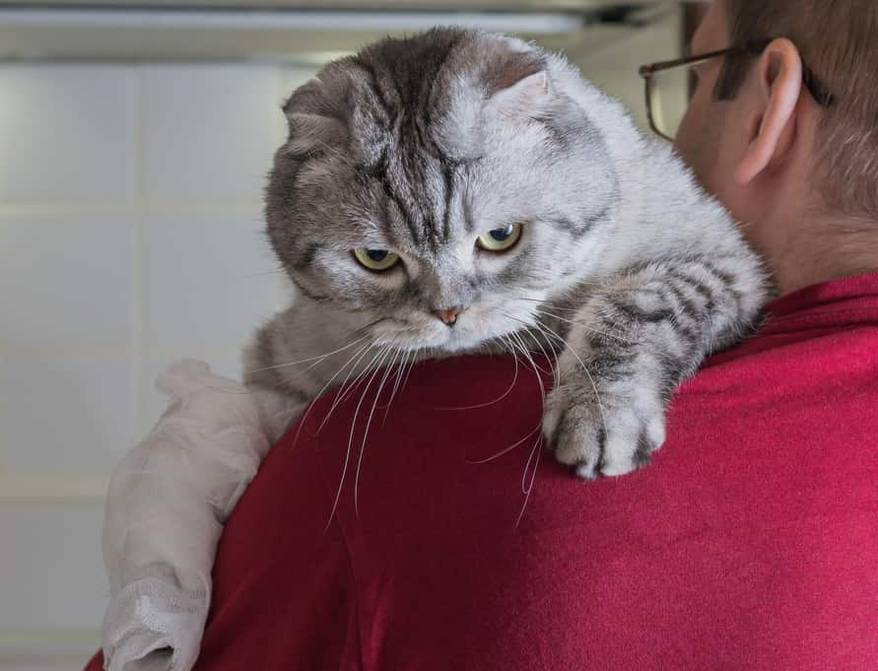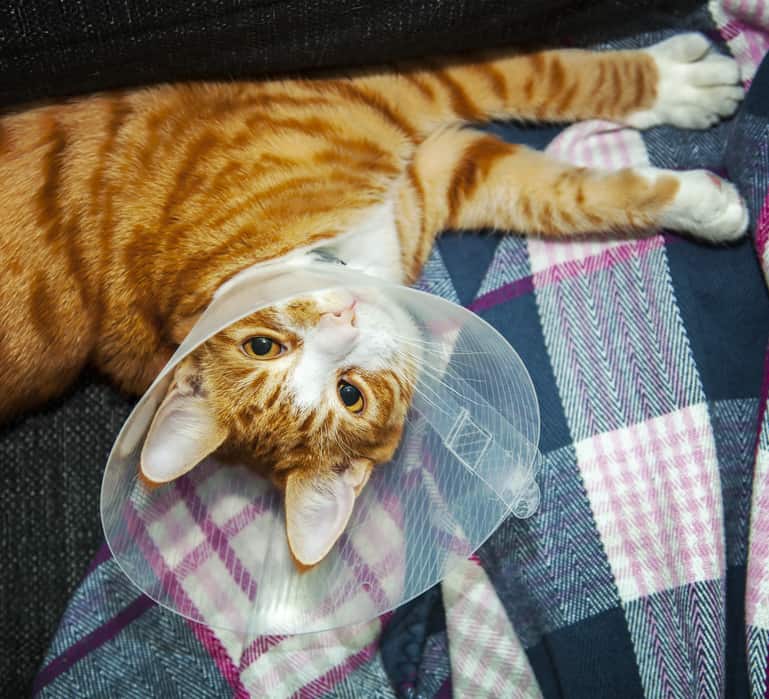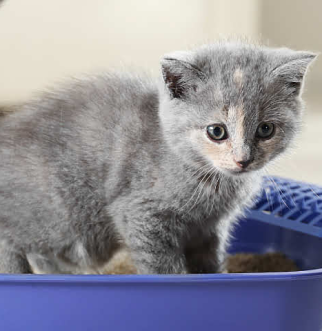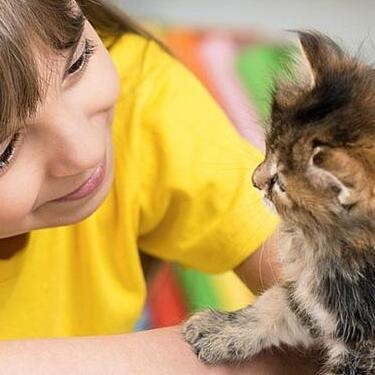
-
Find the right food for your pet
Take this quiz to see which food may be the best for your furry friend.
Find the right food for your pet
Take this quiz to see which food may be the best for your furry friend.
Featured products
 Adult Healthy Cuisine Roasted Chicken, Carrots & Spinach Stew Dog Food
Adult Healthy Cuisine Roasted Chicken, Carrots & Spinach Stew Dog FoodDelicious roasted chicken paired with tender vegetables in a succulent stew
Shop Now Small & Mini Savory Stew with Chicken & Vegetables Dog Food
Small & Mini Savory Stew with Chicken & Vegetables Dog FoodA delicious complement to the nutrition of Science Diet Small & Mini 7+ dog food
Shop Now Adult 7+ Perfect Digestion Chicken, Whole Oats & Brown Rice Recipe Dog Food
Adult 7+ Perfect Digestion Chicken, Whole Oats & Brown Rice Recipe Dog FoodScience Diet's breakthrough nutrition supports ultimate digestive well-being & healthy microbiome for dogs age 7+
Shop NowFeatured products
 Adult Savory Entrée Can Variety Pack Cat Food
Adult Savory Entrée Can Variety Pack Cat FoodPrecisely balanced nutrition with the delicious taste of savory minced chicken to help fuel the energy needs of cats during the prime of their life
Shop Now Adult 7+ Senior Vitality Chicken & Vegetable Stew Cat Food
Adult 7+ Senior Vitality Chicken & Vegetable Stew Cat FoodImproves Everyday Ability to Get Up & Go
Shop Now Adult 7+ Tender Tuna Dinner Cat Food
Adult 7+ Tender Tuna Dinner Cat FoodWith delicious chunks in a decadent gravy
Shop Now -
Dog
- Dog Tips & Articles
-
Health Category
- Weight
- Food & Environmental Sensitivities
- Urinary
- Digestive
- Joint
- Kidney
-
Life Stage
- Puppy Nutrition
- Adult Nutrition
- Senior Nutrition
Cat
- Cat Tips & Articles
-
Health Category
- Weight
- Skin & Food Sensitivities
- Urinary
- Digestive
- Kidney
-
Life Stage
- Kitten Nutrition
- Adult Nutrition
Featured articles
 Does My Pet Hate Me?
Does My Pet Hate Me?Learn tips for bonding with your pet if you've ever thought, 'My dog doesn't like me, or 'Why do I have a standoffish cat?'
Read More Why Are Dogs and Cats So Cute?
Why Are Dogs and Cats So Cute?If waggy puppy dog tails and furry kitten yawns make you swoon, you're not alone. Why are cats so cute? And, dogs too! Let's find out!
Read More Do Dogs and Cats have Belly Buttons?
Do Dogs and Cats have Belly Buttons?Learn whether cats & dogs have belly buttons like humans, what the function is, and if there are any health concerns associated with it.
Read More -


Have you ever come home at the end of a long day to find an injured cat? If you've lived with cats for any length of time, you'll no doubt have a story or two to tell. Whether it's a swollen face, a bleeding ear or an impressive limp, feline injuries are common even for indoor kitties. Learn the basics of cat wound care to help your cat immediately after an injury and while she's recovering from veterinary treatment.
Recognizing an Injured Cat
The hardest part of feline injury management is cats' tendency to hide their pain. That's because their wild side is programmed to avoid showing weakness. Think about it, a visibly injured cat is a magnet for predators.
Signs of pain and injury may be obvious, like bleeding, limping and swelling, but they may also be more subtle, like hiding, lethargy and diminished appetite. If your cat isn't visibly hurt but is still acting oddly, examine her more closely for signs of an injury.

What to Do if Your Cat Gets Hurt
Indoor cat injuries are typically sustained from athletic misadventures (failed jumps or falls), furniture accidents (dashing under a rocking chair or recliner), burns (stove or heater mishaps) and door slam injuries. You might be present when the accident happens, or you might come home to find an injured pet.
As soon as you spot an injury, call your veterinarian or local animal hospital and let them know you're on your way. Treat every feline injury like an emergency. Even the most superficial wounds require immediate attention, and with cats, you never know how painful and complicated a simple limp might be. Almost all injuries heal faster with earlier veterinary intervention.
Follow Vet Instructions for Cat Wound Care
If your injured cat comes home with stitches, a surgical site or an open wound to care for, there are clear rules you should follow. Listen to your vet closely.
The first step is keeping your pet from licking or scratching her wound. If she is sent home with a protective collar, do not remove it without a discussion with your vet. You should only loosen your cat's cone or collar if it is clearly restricting her breathing. If loosening a collar allows your cat to wiggle out of it, call your vet immediately. Vets belabor this point because a collar is often the only thing keeping an injured cat from making her wounds worse.
If your kitty has bandages, they must remain clean and dry. Any wrappings that become saturated with drinking water or urine or smeared with stool or litter must be replaced within a few hours at the most. Your vet may teach you how to change wrappings yourself, or they may ask you to bring your cat back for a clean bandage.
Look out for swelling that may indicate bandages and wrappings are too tight, but never remove them on your own unless you've been instructed to. If the area around a bandage appears swollen, red or oozing, it's time for an immediate check with the vet.
Finally, follow the directions on any medications to the letter. If you have questions about whether they're appropriate or necessary, call your vet to discuss before taking matters into your own hands and discontinuing the medications or changing the dosage. You should never give your cat human medications or anything she has not been prescribed without your vet's advice.



Tasty Tips
Keeping an Eye on Your Feline Patient
Recovering cats should be monitored for overall behavior, elimination habits and appetite. Signs that your cat isn't recovering well include:
- Lethargy
- Hiding
- Diarrhea or constipation
- Urinating outside the litter box
- Vomiting
If she shows any of these signs, take her back to the vet for another check. Any evidence of self-trauma should be grounds for calling your vet, as well. Cats can use their raspy tongues and sharp claws to remove their stitches or induce an infection. The signs of an infected wound may include a foul smell, redness, discharge or swelling.
Nutrition for Injured Cats
Cats have special considerations when it comes to nutrition after an injury or surgery. Many will refuse to eat, making a nutritious diet especially important. Your vet may recommend a therapeutic food for immune support or extra calories while your pet is recovering. Your cat may also need special food if she has an upset stomach or gastrointestinal issues after an injury.
It's important to go out of your way to ask your vet to make specific recommendations for feeding an injured cat. They can take her injuries, medications, other health conditions and eating preferences into account.
Cat Wound Care at Home
People who love cats often want to play a more direct role in treating injured cats. Vets often applaud a desire to learn more about cat wound care, but many strongly recommend giving a professional the opportunity to weigh in. Having a vet direct pet parents' home care efforts can keep them from inflicting accidental damage. If you feel up to the task of treating minor cat injuries at home, here are some pointers:
- Clean minor wounds with warm water and dry them with a clean kitchen towel or a wad of soft paper towels. You can use a mild salt water solution, but Petful advises leaving the disinfectants on the shelf since some can delay healing and others are toxic to cats.
- Deep injuries may improve with soaking or hot compresses. Apply a clean kitchen towel as a compress or soak the injured area in a warm Epsom salt solution for five minutes.
- Only apply topical creams and salves with a recommendation from your vet.
If your cat negatively reacts to you trying to treat her by scratching or biting at you, it is likely best to just bring her into the vet and let the professionals perform the examination and treatment to avoid exacerbating the issue.
As always, call your vet if you have any doubts. Remember to watch out for the signs of an infection or digestive issue, and be sure not to overlook any subtle evidence of pain or discomfort. With a little love and care from you and your vet, your kitty will hopefully be back to her frisky self in no time.


Dr. Patty Khuly is an award-winning veterinarian known for her independent thinking, her spirited pet advocacy, her passion for the veterinary profession, and her famously irreverent pet health writing.
Dr. K is an honors graduate of both Wellesley College and the University of Pennsylvania School of Veterinary Medicine. She received her MBA at The Wharton School of Business as part of the prestigious VMD/MBA dual-degree program. She now owns Sunset Animal Clinic, a veterinary practice in Miami, Florida.
Related products
Related articles

Cats are naturally very clean and chances are your kitten will already have learned how to use the litter box from her mother before she comes to live with you.

How do you get a cat to lose weight? Learn all about cat foods for weight loss, including how to choose weight control cat food and exercise tips.

What is the best food for an overweight cat? Learn all about weight control food for cats, including what's in it and how it works.

Discover how to train your cat, starting with very basic first steps that both reward good behavior and discourage the bad.

Put your cat on a diet without them knowing
Our low calorie formula helps you control your cat's weight. It's packed with high-quality protein for building lean muscles, and made with purposeful ingredients for a flavorful, nutritious meal. Clinically proven antioxidants, Vitamin C+E, help promote a healthy immune system.
Put your cat on a diet without them knowing
Our low calorie formula helps you control your cat's weight. It's packed with high-quality protein for building lean muscles, and made with purposeful ingredients for a flavorful, nutritious meal. Clinically proven antioxidants, Vitamin C+E, help promote a healthy immune system.

